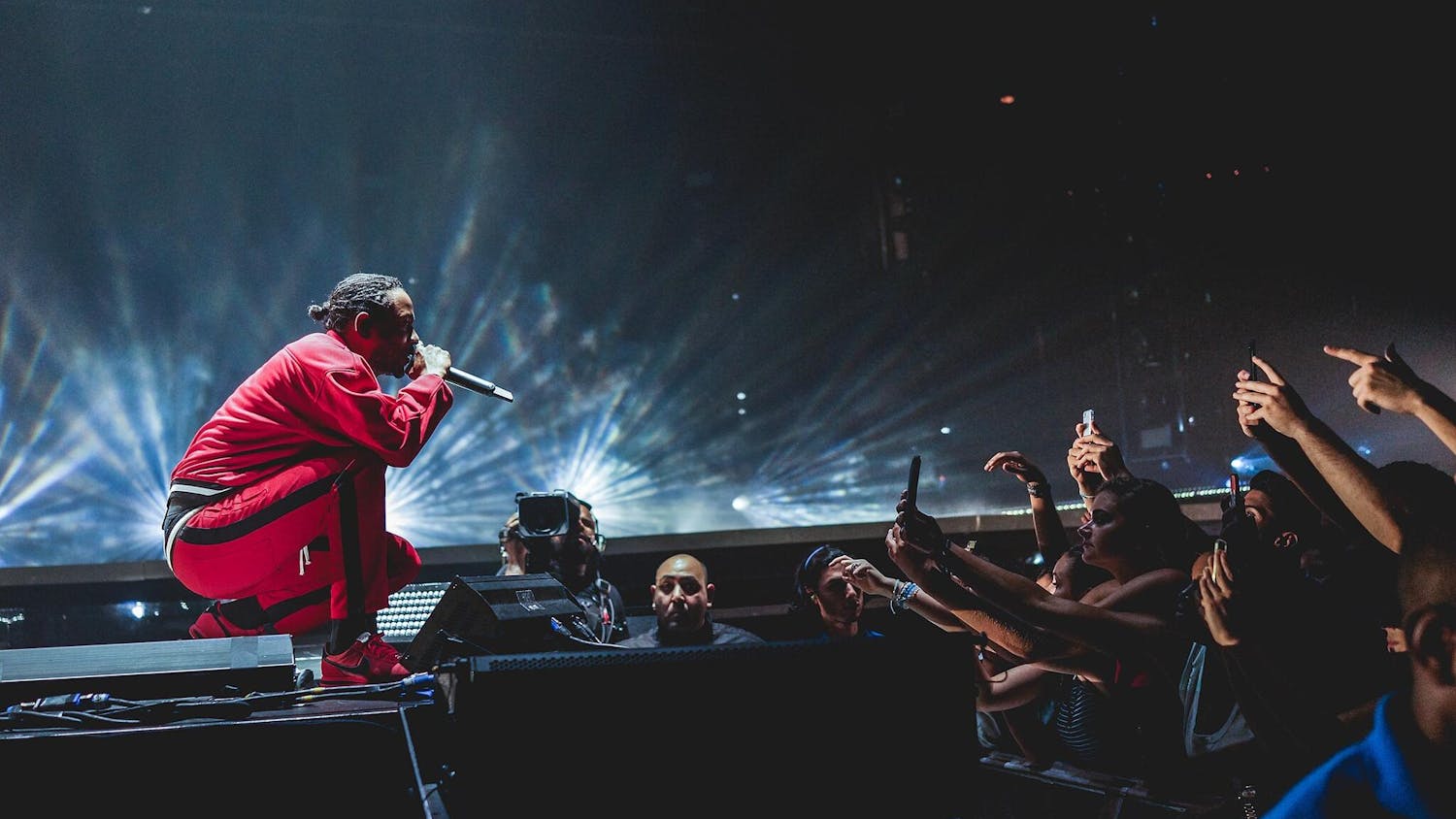In the aftermath of a small dispute, partners Luke (Dan Roach) and Adam (Will McGarrahan) talk quietly in their kitchen. "The New York University kids are back from the summer," one of them observes, as a muffled rendition of R.E.M.'s "Losing My Religion" plays in the background. The other nods in agreement, and as their conversation continues, it smooths over their disagreement. For its very subtle depiction of love affected by underlying religion, this moment in "Next Fall" is among the best in the production, encapsulating this controversial play.
Given the frequent portrayals of the LGBT community in stereotyped, overblown roles, it's difficult to find representations that don't feel like caricatures. Furthermore, religion is almost never added to the mix. Actor Geoffrey Nauffts's first full-length play, "Next Fall," confronts these two issues with great success.
Though "Next Fall" is Nauffts's freshman effort, his show has already garnered impressive critical acclaim. The piece was a 2010 Tony nominee for both Best Play and Best Direction of a Play. It also won the 2008 Theatre Visions Fund Award from the Blanche and Irving Laurie Foundation. Nauffts himself won the 2010 John Gassner Award of the Outer Critics Circle Awards for playwriting.
The play begins when a soon-to-be comatose Luke is rushed to the hospital after getting hit by a taxicab in New York City. While his family, friends Brandon (Kevin Kaine) and Holly (Deb Martin) and boyfriend Adam wait with bated breath to learn his prognosis, flashbacks illustrate the relationship between Luke, an evangelical Christian, and Adam, an atheist. Though the couple has been together for four years at the time of the accident, religious differences still arise between them.
"My original exploration was going to be about two worlds colliding — believer and nonbeliever," Nauffts told The New York Times. "Then, in giving it a plot, all of these other contemporary issues started to come up and arise. Gay marriage, Proposition 8 — suddenly I had to explore all that. Marriage is a hot-button issue, and religion fits into it in a huge way for us."
Nauffts also told the Times that Adam and Luke's biblical names are intentional. Their titles hail from Genesis of the Old Testament and from a Gospel of the New Testament, respectively, in a furthering of the play's themes of contrast and tension.
Nauffts himself is no stranger to inner conflict: Like his character Adam, Nauffts grew up in a household absent of religion, but later came to deeply respect the faith of a variety of friends and coworkers before coming out as a gay man.
Though Luke and Adam's on-stage physical chemistry leaves something to be desired, their relationship is poignant in its authenticity. It is, in fact, the only romantic relationship in the play that doesn't come off as blatantly dysfunctional. From their first standoff about religion to a scene in which Luke literally shoves all evidence of his life as a gay man into a closet when his father comes to visit, the couple's romance is touchingly honest.
As the story of their relationship unfolds, it becomes all the more gut-wrenching to realize Luke's medical situation. Fortunately, Adam's snarky, cynical one-liners keep the piece from becoming too heavy. His wit maintains the play's power as a dichotomous, hilarious tragedy.
Luke's parents are melting pots for many of the play's conflicts. Luke's father, Butch (Robert Walsh), is convincingly vulnerable underneath his shell of misogynistic masculinity. Luke's mother Arlene (Amelia Broome) is also an unexpected gem. Though she plays a more minor character, her sincere empathy and warmth complement the abrasiveness of Butch perfectly and make their moments together on stage much more manageable.
Regardless of Luke and Adam's sexual orientations or the views of the media and the people around them, theirs is a genuine relationship built from respect and affection. It would be difficult to find a more empathetic or emphatic theatrical argument for gay marriage.





